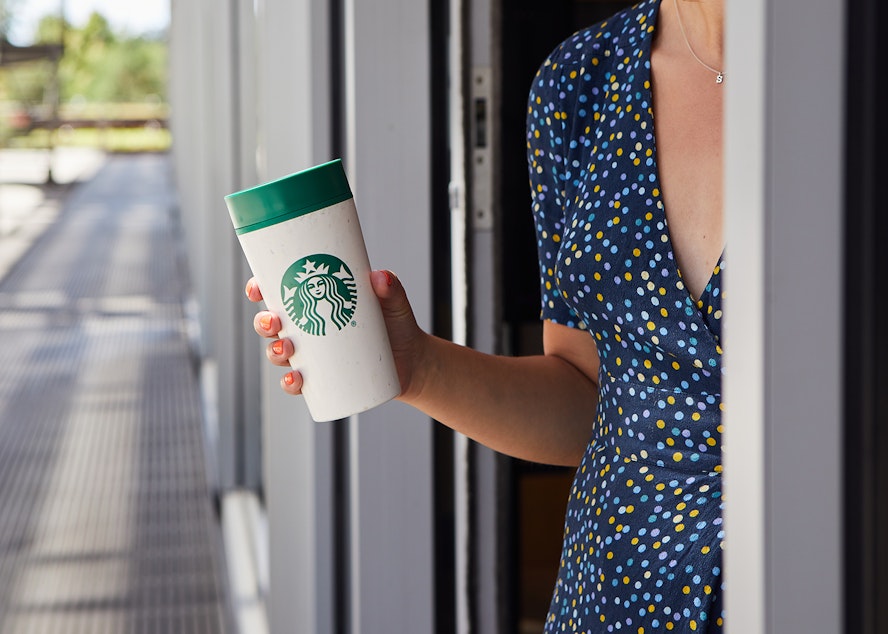Starbucks' future involves reusable cups and unionized workers

Starbucks annual shareholders meeting on Wednesday was a display of company success amidst new union pressure.
In a busy day for Starbucks, its CEO Kevin Johnson announced Tuesday, March 16 that he's retiring.
He ran his final shareholders meeting where the company laid out its 2030 plans. Those plans include phasing out disposable cups. Union supporters took the opportunity to question executives.
RELATED: Starbucks CEO is stepping down. Howard Schultz returning as interim boss
Johnson (who is stepping down next month) looked back on his nine years with the company and thanked the company's "partners," which is Starbucks-speak for employees.
"You taught me what it means to be a partner, that emotional connection," he said. "And when I put on the green apron and went behind the bar you would indulge me with a beverage throw-down contest."
Sponsored
As Johnson exits, a familiar face will return — former two-term CEO Howard Schultz. Schultz will run the company on an interim basis.
Commitments and what's happening with the cups
At the general meeting, executives announced plans to distance the company from its iconic branded cup. A cup famous for the hand-written customer name, debates over the holiday design, and the classic mermaid logo.
Stores will still offer the classic paper and plastic cups, but make it easier (and encouraged) for customers to choose reusable mugs instead. By next year the company plans to let customers use their own cup or mug at every store in the U.S.
Starbucks' chief sustainability officer, Michael Kobori, conceded that their famous cups are a "ubiquitous symbol of a throwaway society." Starbucks plans to offer borrow-a-cup programs in more stores by 2025.
Sponsored
The company also announced it plans to open 1,000 more "community stores." Those stores are based in under-served communities, military bases, or feature predominately workers with disabilities. They featured one in White Center (to Seattle's south) during the shareholders meeting.
On a financial note, executive said they expect to deliver another $20 billion to shareholders by 2025, after delivering $25 billion in the last three four years.
But the meeting wasn't all cup half-full
A group of investors asked Starbucks to support workers' rights to unionize, with more than 100 stores now filing to form a union.
The group, which hold assets over $1 billion, pressed the company to display "neutrality" to the dozens of stores that are working to form a union. "Neutrality" means the company would not oppose unionization efforts.
Board chair Mellody Hobson responded by saying they want a constructive relationship with the union. But they want a different approach.
"Neutrality, in its nuanced form, limits our ability to speak to our partners in certain ways," she said. "And that goes directly against the DNA of the company."
Hobson says they've been able to succeed by working directly with employees up to now.
Partners at more than 100 Starbucks stores have filed to join the union Starbucks Workers United.




